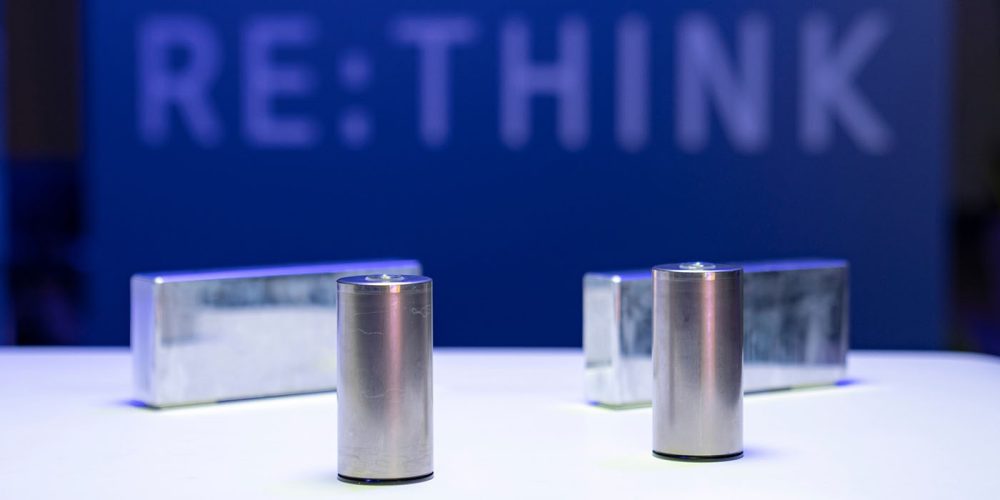
BMW Group has come out and publicly stated that its future success in a competitive EV market relies heavily on “powerful, innovative, and sustainably produced” battery cells. When BMW’s Neue Klasse (new class) EV architecture launches in 2025, the German automaker says the EV platforms will utilize newly developed 46-mm-diameter battery cells, the same larger design Tesla is using.
This past August, we covered a report that BMW was planning to adopt Tesla’s 4680 (46 mm by 80 mm) cylindrical battery cells – the largest EV cells to date. Tesla has already been manufacturing the 4680 cells itself at Gigafactory Texas, but the automaker has also been recruiting other battery manufacturers to help produce the cell to maximize its availability.
One of the interested parties was EVE Energy in China, which was reportedly going to be producing the 4680 EV cells for BMW as well. At the time, the German automaker would not comment, but said battery news would be coming in early September.
Here we are, just over a week into the month and BMW has confirmed it will adopt 46-mm-diameter cells for its next EV platform, but with a twist. Furthermore, we’ve learned that the automaker is throwing down double-digit billions to battery manufacturers to erect gigafactories in Europe, China, and the USMCA free trade zone (US, Mexico, Canada).

BMW recruits CATL and EVE for 4680 EV battery production
BMW Group confirmed its new battery ambitions in a press release today, sharing a wealth of new information about its sixth generation of battery cells and some of the performance they will provide to BMW’s 800V Neue Klasse platform.
First, BMW states the cylindrical cells have been specifically designed for its new EV architecture and can increase the range of its highest-range model by up to 30% (WLTP). Frank Weber, a member of the Board of Management of BMW AG in charge of development, elaborated on the specs:
The newly-developed sixth generation of our lithium-ion cells will bring a huge leap in technology that will increase energy density by more than 20 percent, improve charging speed by up to 30 percent and enhance range by up to 30 percent. We are also reducing CO2 emissions from cell production by up to 60 percent. These are big steps for sustainability and customer benefits.
Did you catch it? Weber mentions lithium-ion cells. Previously, we’ve questioned whether BMW intended to implement lithium iron phosphate (LFP) chemistry into the 46 mm cells, which could enable less expensive BMW EVs. Additionally, critical raw materials like cobalt and nickel can be avoided entirely in the cathode material, offering more sustainability.
Although BMW has clearly committed to lithium-ion cylindrical EV cells, the automaker has stated the sixth-generation battery technology will also have an option for LFP cathodes for the first time. Furthermore, BMW Group says it is developing all-solid-state batteries (ASSBs) and aims to reach series introduction by the end of the decade. BMW has vowed to present a demonstrator EV with this technology “well before 2025.”
Another important aspect to note is that BMW states that while the cells will be 46 mm in diameter, they will be available in two different heights. It has not shared those heights, but expect one to be 80 mm like the Tesla cells, joined by a second height option.
To support this impending demand for its new 46 mm cells, BMW already has contracts in place with two battery manufacturers while it searches for a third. The two awarded contracts are with CATL and EVE Energy in the “two-digit billion-euro range” to support each battery manufacturer in erecting multiple gigafactories – two in Europe and two in China.
Each of the battery cell factories are planned to have a total annual capacity up to 20 GWh. BMW states it is already planning two additional battery cell factories in North America, but those partners have not yet been decided. If and when that does happen, those locally produced cells are a stepping stone for future BMW EVs to qualify for federal tax credits in the US under revised terms of the Inflation Reduction Act. As long as the luxury automaker can deliver a vehicle with an MSRP below the price thresholds.
On the wings of its six planned gigafactories, BMW believes costs of its sixth generation of battery cells can be reduced by up to 50%, based on current market assumptions.
Subscribe to Electrek on YouTube for exclusive videos and subscribe to the podcast.
Author: Scooter Doll
Source: Electrek



